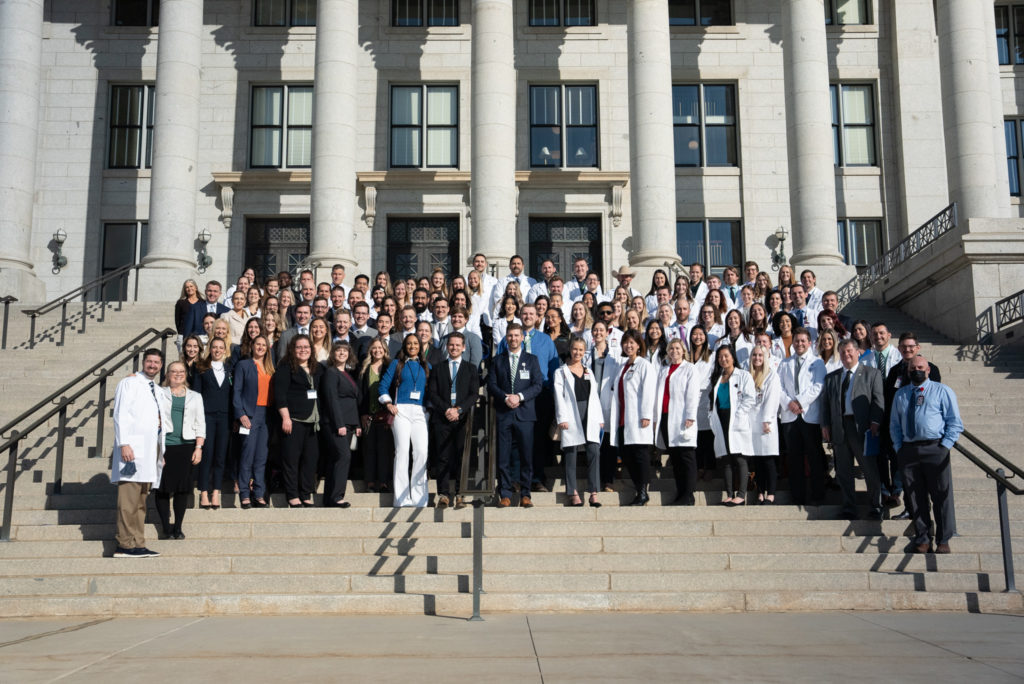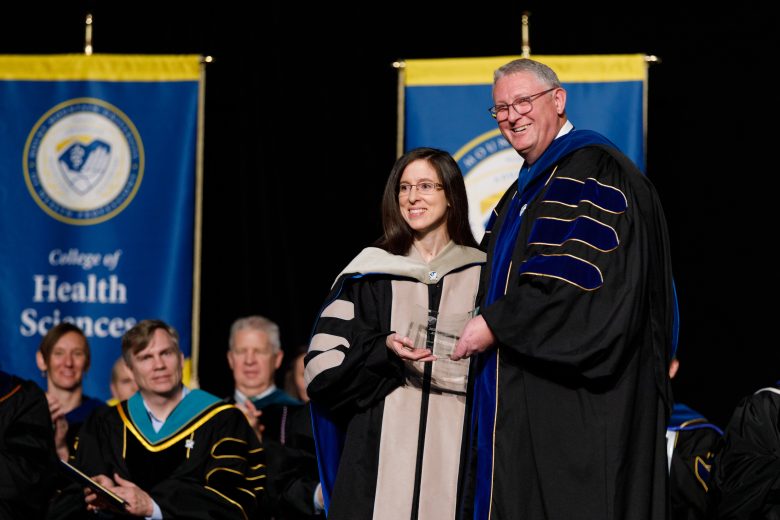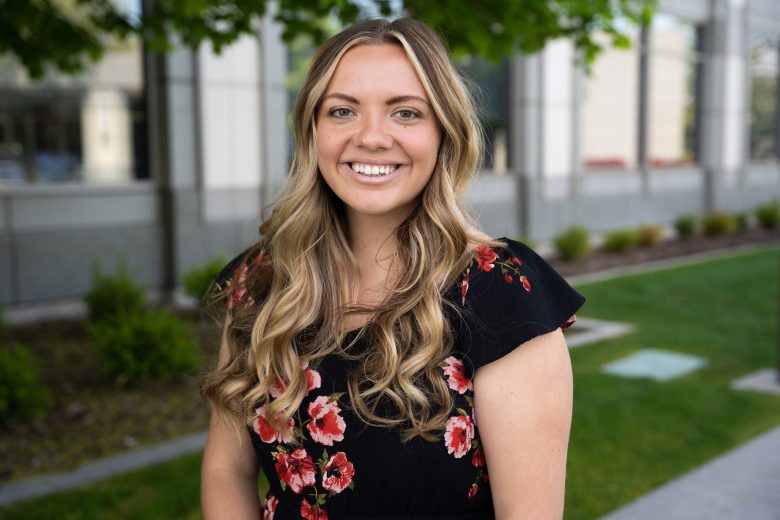As of May 24, 2021, the AAPA House of Delegates (HOD) passed a resolution in which they affirmed “physician associate” as the the official title of the PA profession, replacing the previous name of “physician assistant.” Now, almost a year later, the PA profession is in the process of undergoing this name change.
Faculty from the Master of Physician Assistant Program (MPAS) at Rocky Mountain University of Health Professions (RMUoHP) Viet Le, MPAS, PA-C, FACC, FAHA; Brad Doll MPAS, PA-C; and Jon Baird, DMSc, PA-C, ATC, described the impact they believed this name change would have on the University, its students, and the profession as a whole.

“From a professional standpoint, this subtle but important change from ‘Assistant’ to ‘Associate’ creates a ‘new neural pathway’ for folks to view PAs,” said Le. “There is implicit bias that we all carry with both of those terms.”
Le explained how these biases can be observed even among the Utah legislature.
“Our state senators and representatives come from many walks of life and while they create and vote on legislation across broad swaths that impact our lives, one cannot expect them to fully navigate nuances, such as medical job titles,” said Le. “For example, one state legislator mistook Physician Assistants to be the same as Medical Assistants, believing ‘physician’ and ‘medical’ were interchangeable terms to mean ‘assistant’ to someone practicing medicine rather than that PAs are trained to practice medicine.”
While agreeing that the name change will likely have a positive impact on the PA profession, Doll described some of potential concerns as well. “It may have a positive impact in helping define the profession as well as to help force PAs to determine what we want our future profession to look like,” said Doll. “However, I think the pushback from other professions will likely have more impact than the name change itself.”
Doll continued, “It may have a negative impact by causing a separation and division between PAs and MDs (doctor of medicine) and DOs (doctor of osteopathic medicine). It might cause new barriers to arise which could impede us from practicing to the maximum of our ability.”
In between these concerns and hopes, Baird expressed the opinion that the name change might not have a large impact.
“It may help clarify the role of the PA in the minds of some, however, I view it largely as ceremonial. There is only so much that can be discerned about the knowledge, skills, abilities, and qualifications of a professional by their professional name,” said Baird.
“True understanding of the profession will come as a result of study,” said Baird. “If the profession will continue to create and publish information about itself, it will provide the opportunity for those seeking to correctly understand more about PAs.”
Baird further expressed that the only changes he could see occurring because of this alteration to the name would have to do with the degree awarded as well as appealing to an older generation that might have felt looked over.
“‘Master of Physician Assistant Studies is kind of an odd name when we study medicine, not physician assisting,” said Baird. “I think a ‘master’s degree in medical science’ would more accurately describe what we teach and our students learn.”
Baird added, “I think this change largely vindicates an older generation of PA who have felt slighted for a long time, being thought of as merely ‘assistants.’ I think after 50 years there is a greater understanding than ever before of PAs and what we do. Not 100% understanding, however, PAs entering the profession now will reap the benefits of 50 years worth of public and professional relations work. As a result, I think those young professionals have every reason to feel confident.”
Both Le and Doll agreed with Baird’s assertion that not much would change, at least in relation to PAs and their patients.
“I don’t foresee any real change for provider-patient relationships at this point,” said Doll. “If any, it will be a slow change toward some increased understanding of role and respect.”
Le agreed with this sentiment and expressed hope for his own personal relationship with patients in the midst of this change.
“At 17 years in practice, my hope is that the name change will not alter my relationships that I have developed with my patients and fellow health professionals/providers other than to heighten the concept of team-based medicine, helping our colleagues recognize the training and potential PAs have to enhance patient care,” said Le.
“With this professional title change comes perhaps an even more accelerated timeline for changes in state practice acts to allow for Optimal Team Practice (OTP).”
Overall, the biggest changes likely to come from the name change have to do with students.
“From what I can tell, the name change is likely positively impacting the recruitment of future PAs,” said Doll. “I think students see this as a ‘moving upward’ for PAs. I interviewed potential students this past cycle, and many of them brought up the name change, and insinuated that it was a positive thing for the direction of the profession.”
Le said “I believe this change removes the implicit bias tied to the word ‘assistant’ for these current students and future practicing PAs. The name change may lead to less time explaining what a PA is or does, allowing PAs to focus on practicing medicine and explaining disease, assessment, treatment, prognosis, etc.”



